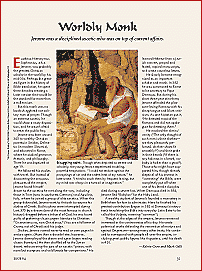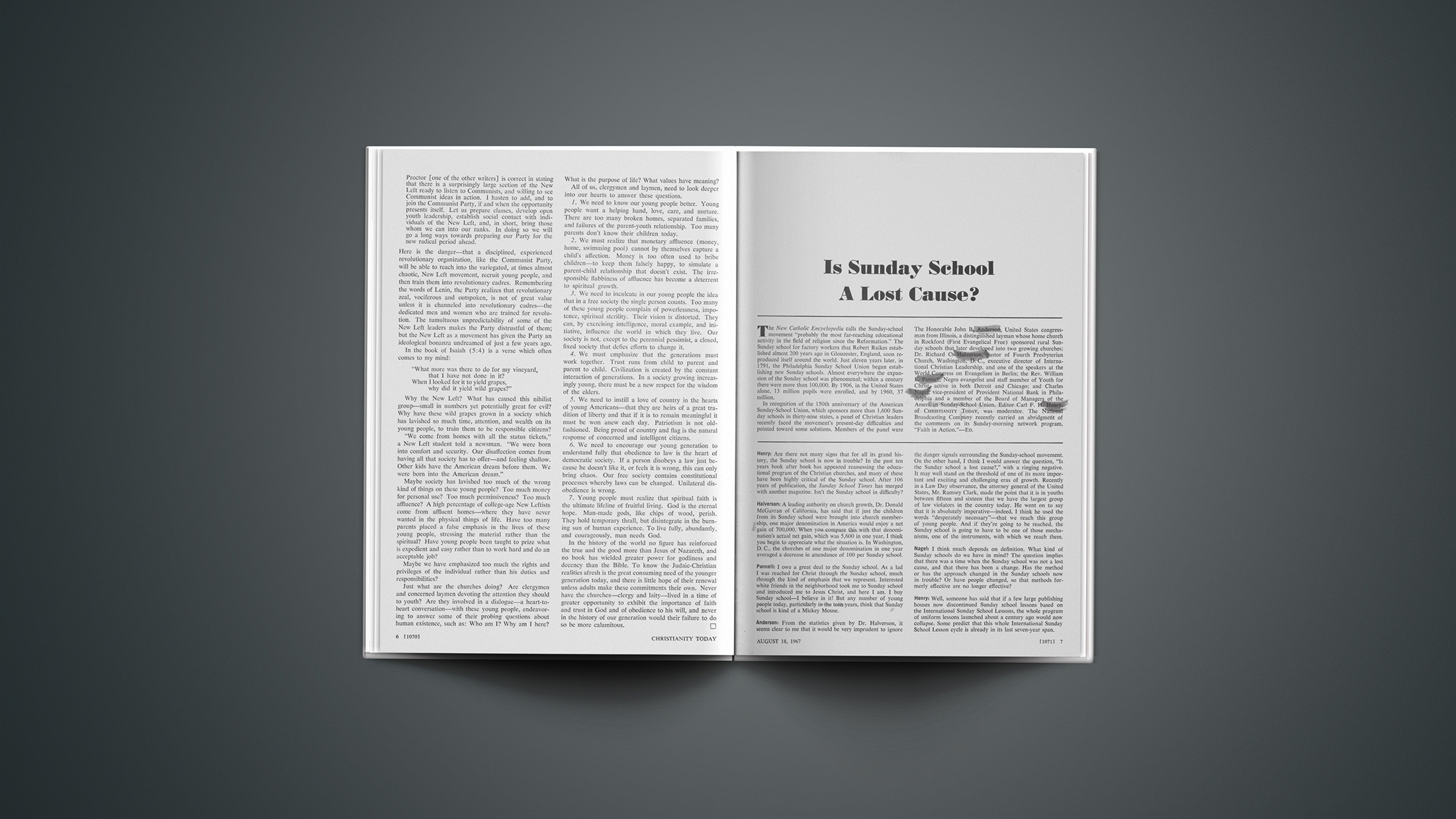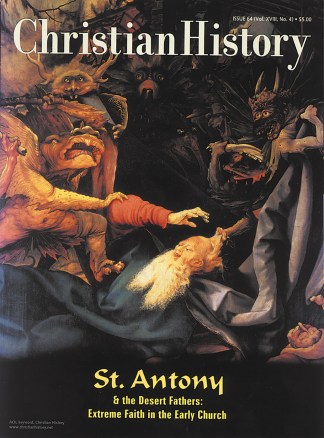
Eusebius Hieronymus Sophronius, a.k.a. Jerome, was probably the greatest Christian scholar in the world by his mid-30s. Perhaps the greatest figure in the history of Bible translation, he spent three decades creating a Latin version that would be the standard for more than a millennium.
But this monk was no bookish egghead nor solitary man of prayer. Though an extreme ascetic, he could show a nasty disposition, and he wasn't afraid to enter the public fray.
Jerome was born around 345 to wealthy Christian parents in Stridon, Dalmatia (in modern Slovenia), and educated in Rome, where he studied grammar, rhetoric, and philosophy. There he was baptized at age 19.
He followed his studies with travel. But instead of discovering the sensuous pleasures of the empire, Jerome found himself drawn to the ascetics he met along the way, including those in Trier (now in southwest Germany) and Aquileia, Italy, where he joined a group of elite ascetics. When this group disbanded, Jerome went to Antioch to resume his studies of Greek. But his plans were interrupted during Lent 375 by a dream (one of the most famous in church history): dragged before a tribunal of God, he was found guilty of preferring classic pagan literature to Christian: "Ciceronianus es, non Christianus," (You are a follower of Cicero, not of Christ) said his judge.
Shaken, Jerome vowed never to read or own pagan literature again. (More than a decade later, however, Jerome downplayed the dream and again began reading classic literature.) He then shuffled off to the Syrian desert, rediscovering the joys of an ascetic "prison, with none but scorpions and wild beasts for companions." He learned Hebrew from a Jewish convert, prayed and fasted, copied manuscripts, and wrote countless letters.
He slowly became recognized as an important scholar and monk. In 382 he was summoned to Rome to be secretary to Pope Damasus. But during his short three-year stint there, Jerome offended the pleasure-loving Romans with his sharp tongue and blunt criticism. As one historian put it, "He detested most of the Romans and did not apologize for detesting them."
He mocked the clerics' vanity ("The only thought of such men is their clothes—are they pleasantly perfumed, do their shoes fit smoothly?") and their pride in their beards ("If there is any holiness in a beard, nobody is holier than a goat!"). Those who might have supported him, though already skeptical of his interest in "correcting" the Bible, were completely put off when one of his female disciples died during a severe fast. When Damasus died in 384, Jerome fled "Babylon" for the Holy Land.
A wealthy student of Jerome's founded a monastery in Bethlehem for him to administer. Here he finished his greatest contribution (begun in 382 at Damasus's instruction): translating the Bible into everyday Latin (later to be called the Vulgate, meaning "common").
Though at the edges of the empire, Jerome remained immersed in the controversies of his day. He wrote polemical works defending the veneration of martyrs and against Origenism—among many other tracts. He continued to correspond with people all over the empire, including great public figures like Augustine, until his death in 420.
For more information on this topic, see:
Catholic Encyclopedia: St. Jerome http://www.csn.net/advent/cathen/08341a.htm
Copyright © 1999 by the author or Christianity Today/Christian History magazine. Click here for reprint information on Christian History.










